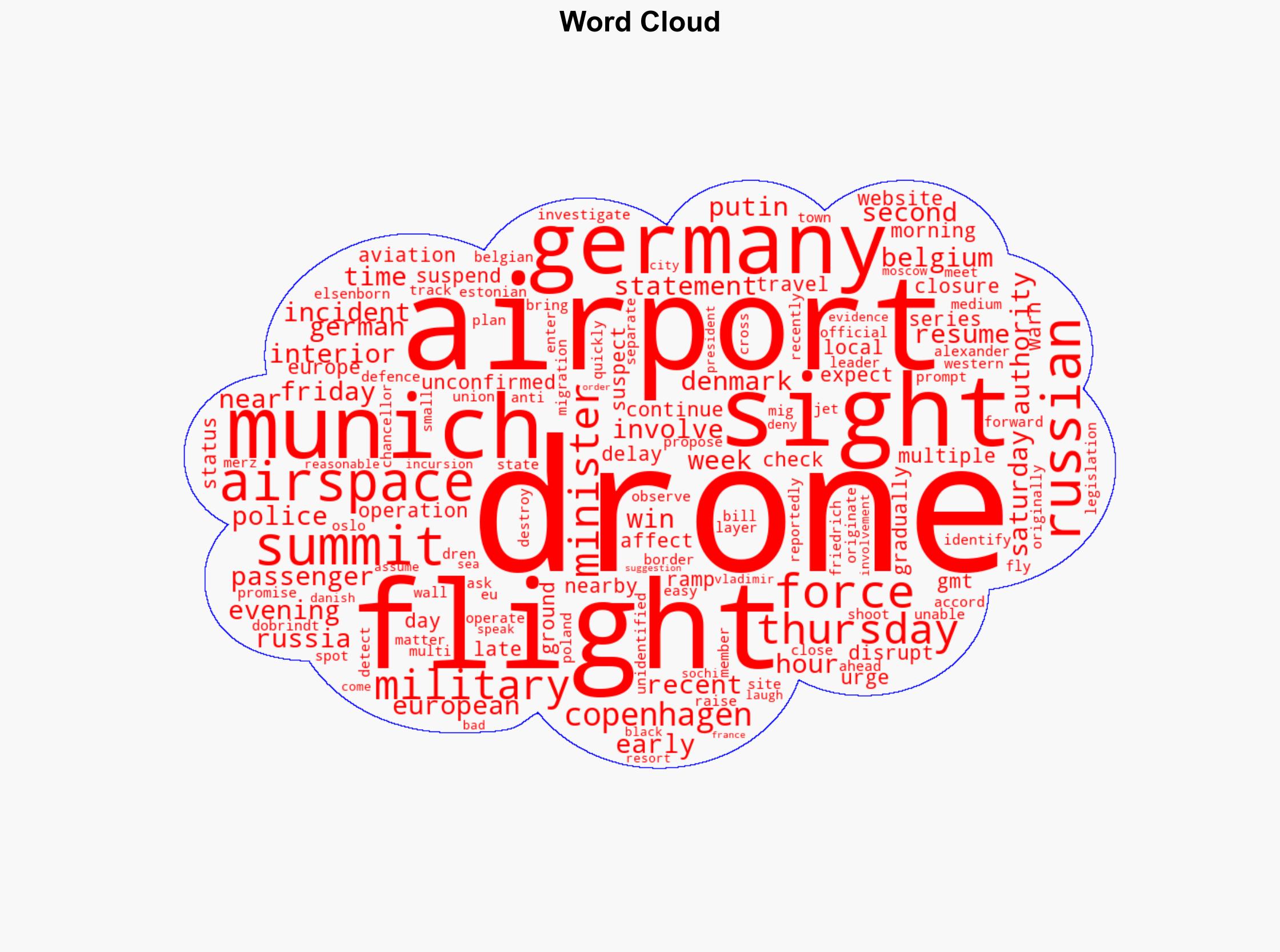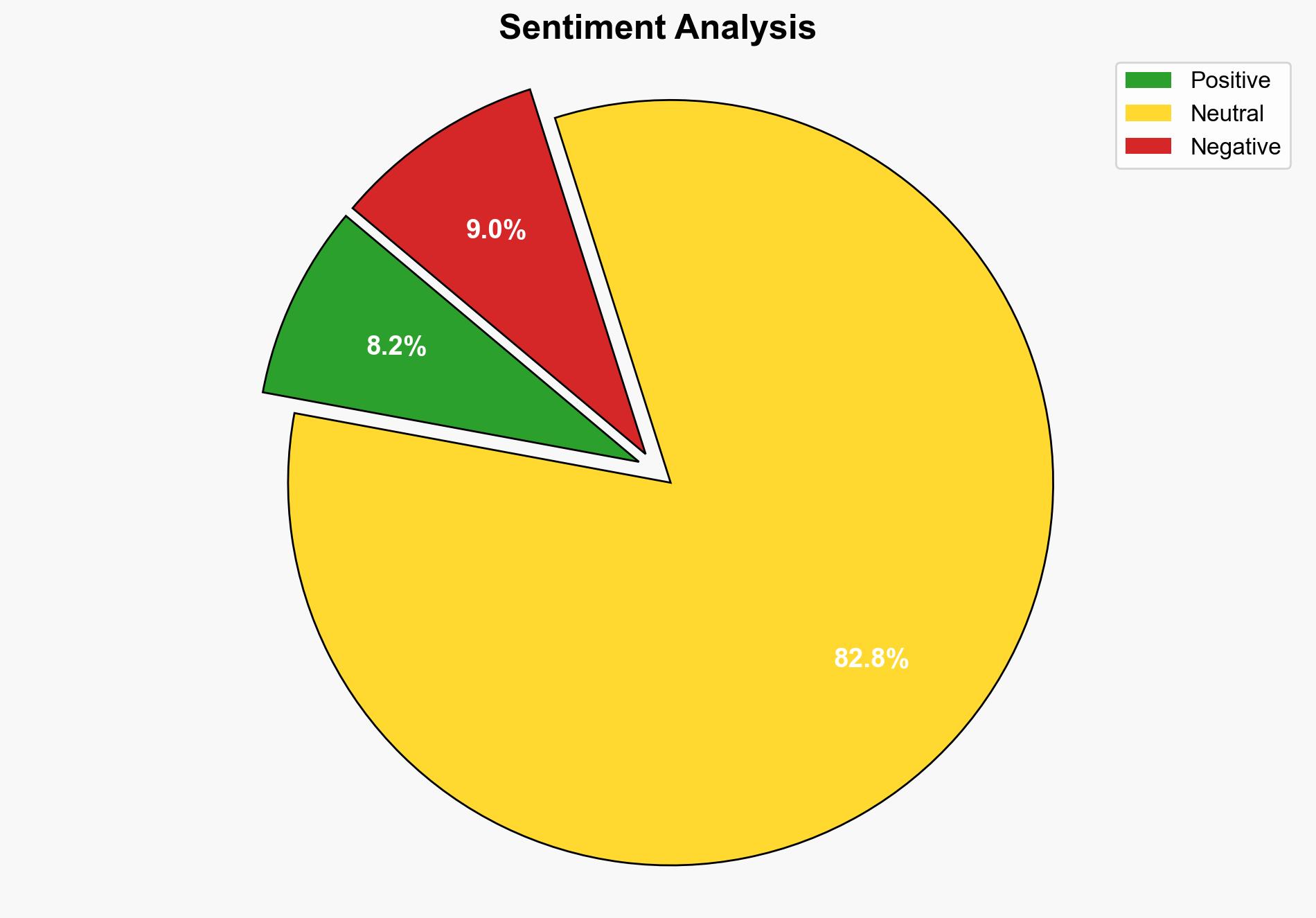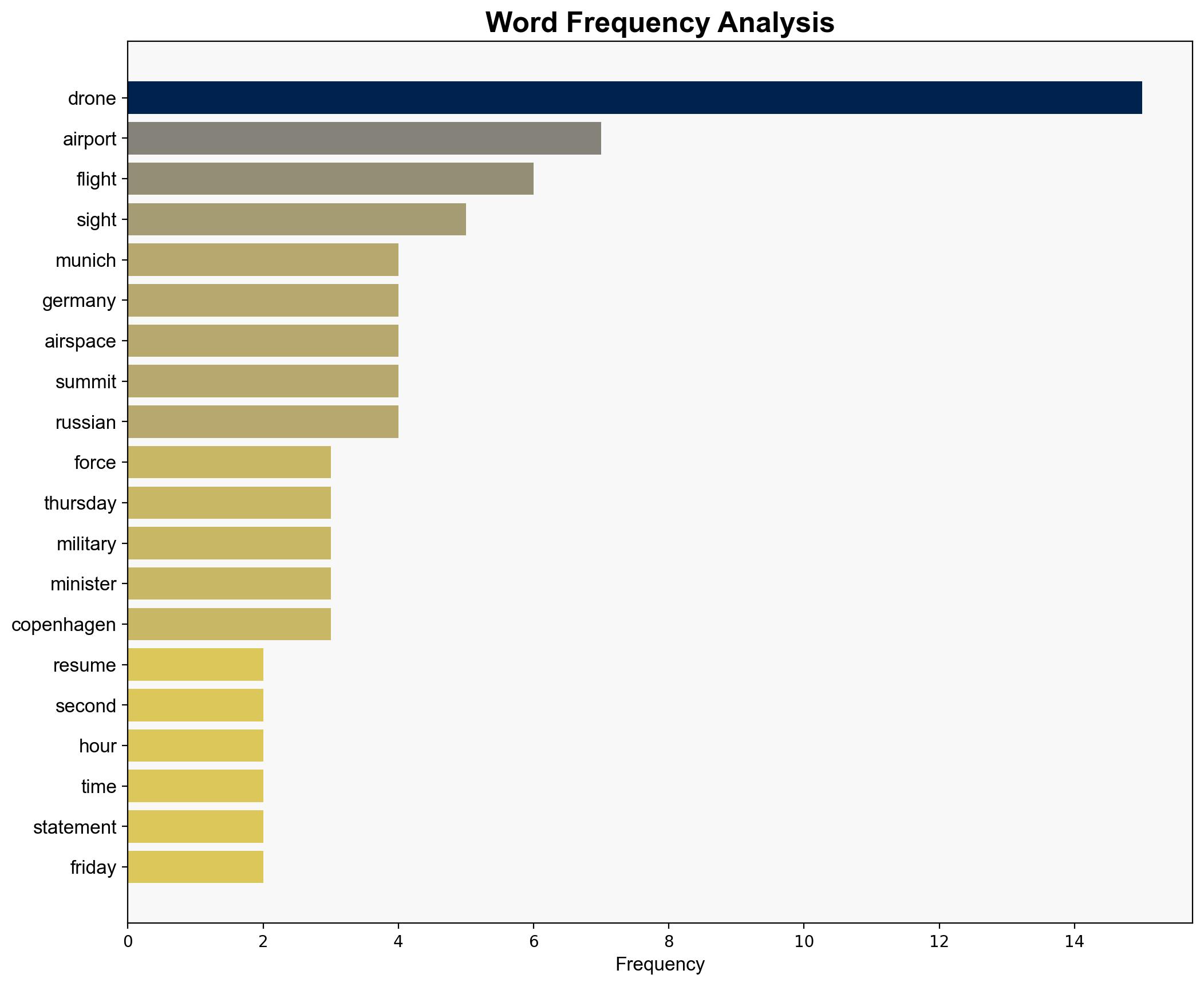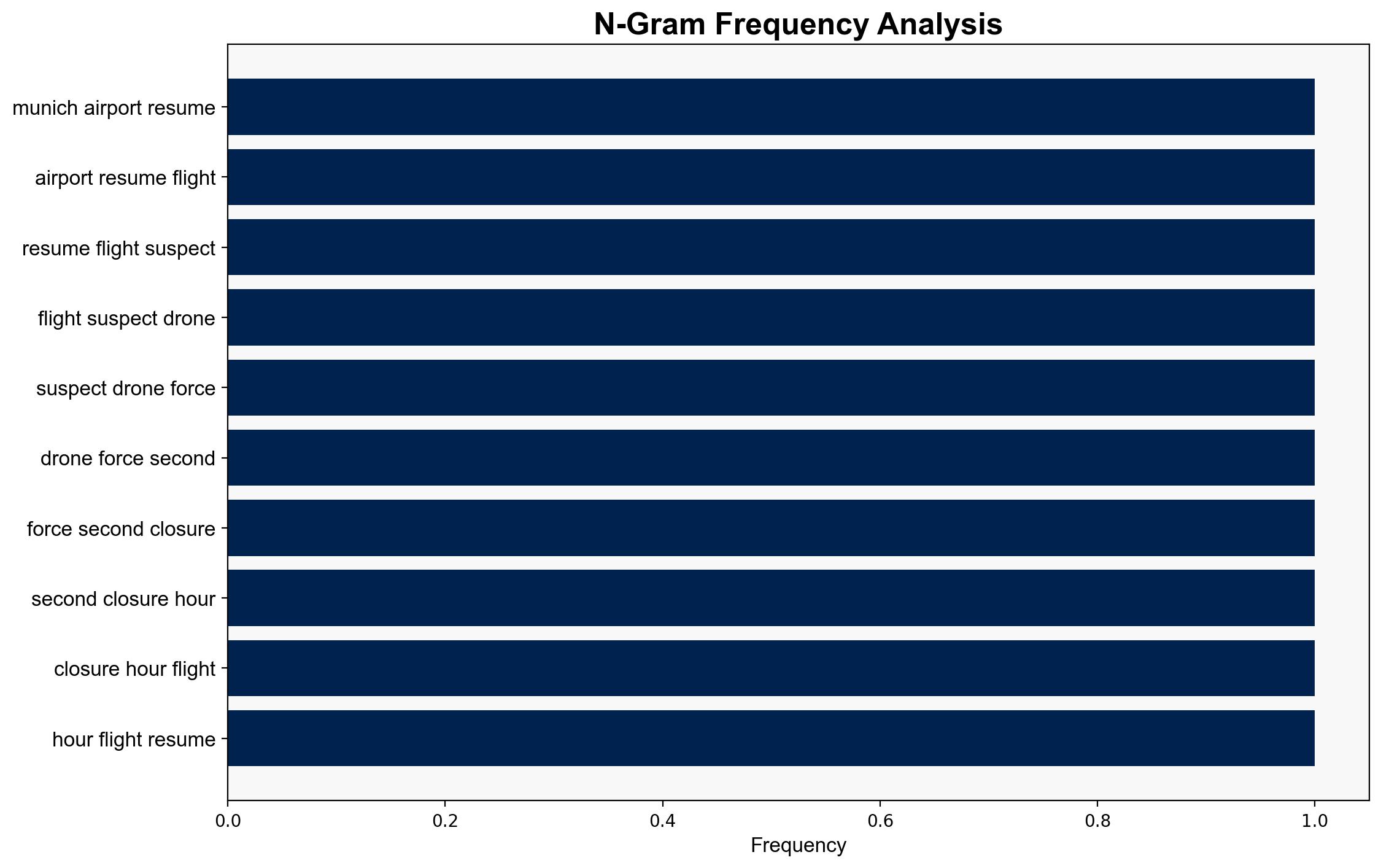Suspected drones force second Munich airport closure in 24 hours – BBC News
Published on: 2025-10-04
Intelligence Report: Suspected drones force second Munich airport closure in 24 hours – BBC News
1. BLUF (Bottom Line Up Front)
The most supported hypothesis is that the drone sightings at Munich airport are part of a coordinated effort to test and disrupt European airspace security, potentially linked to Russian activities. Confidence level: Moderate. Recommended action includes enhancing drone detection and defense capabilities at key European airports and increasing intelligence sharing among EU member states.
2. Competing Hypotheses
1. **Hypothesis A**: The drone sightings are part of a coordinated effort by a state actor, likely Russia, to test European airspace defenses and create disruption.
– **Supporting Evidence**: Recent incursions by Russian drones and aircraft in European airspace; EU discussions on anti-drone measures; Russian denial and mockery of involvement.
2. **Hypothesis B**: The drone sightings are the result of non-state actors or hobbyists, with no strategic intent, exploiting gaps in drone regulation and enforcement.
– **Supporting Evidence**: Lack of direct evidence linking sightings to a state actor; potential for civilian drone misuse; previous incidents involving hobbyist drones.
Using Analysis of Competing Hypotheses (ACH), Hypothesis A is better supported due to the pattern of recent airspace violations and geopolitical tensions involving Russia, despite the lack of direct evidence.
3. Key Assumptions and Red Flags
– **Assumptions**: Assumes state actors have the capability and intent to use drones for strategic disruption. Assumes non-state actors lack the resources for coordinated actions.
– **Red Flags**: Lack of concrete evidence directly linking Russia to the incidents. Potential for cognitive bias in attributing actions to Russia based on recent geopolitical tensions.
– **Missing Data**: Detailed tracking and identification data of the drones involved; comprehensive analysis of drone capabilities and origins.
4. Implications and Strategic Risks
– **Patterns**: Increased frequency of airspace incursions suggests a testing phase for larger operations.
– **Cascading Threats**: Potential for escalation if state actors are involved, leading to broader geopolitical tensions.
– **Economic Risks**: Disruptions at major airports can have significant economic impacts, affecting travel and trade.
– **Psychological Impact**: Repeated incidents may erode public confidence in aviation security and government response capabilities.
5. Recommendations and Outlook
- Enhance drone detection and neutralization technologies at major European airports.
- Increase intelligence sharing and coordination among EU member states to address cross-border drone threats.
- Scenario Projections:
- **Best Case**: Improved defenses deter further incidents, and no state actor involvement is confirmed.
- **Worst Case**: Continued disruptions lead to significant economic and geopolitical consequences.
- **Most Likely**: Sporadic incidents continue, prompting gradual improvements in defense measures.
6. Key Individuals and Entities
– Alexander Dobrindt
– Friedrich Merz
– Vladimir Putin
7. Thematic Tags
national security threats, cybersecurity, counter-terrorism, regional focus





